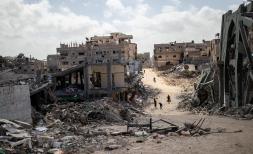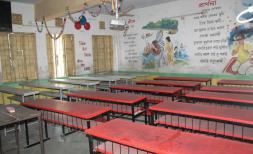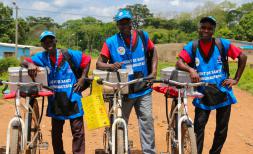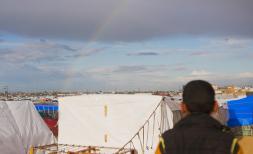North West Syria: Schools and children still under attack despite year of ceasefire
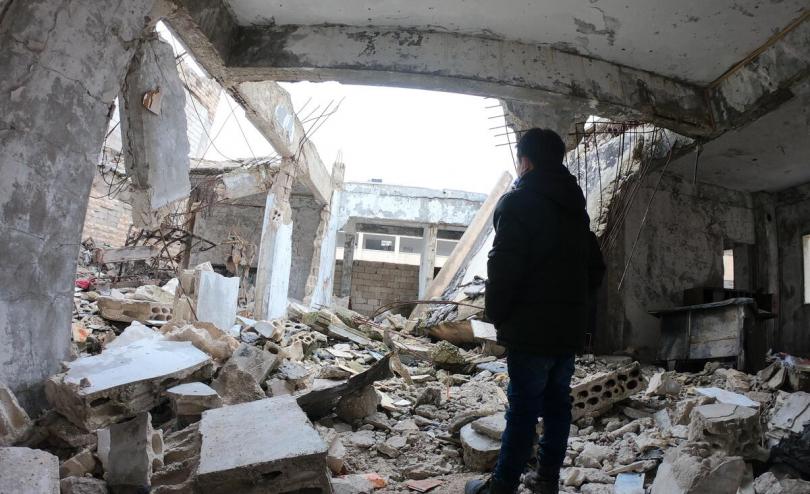
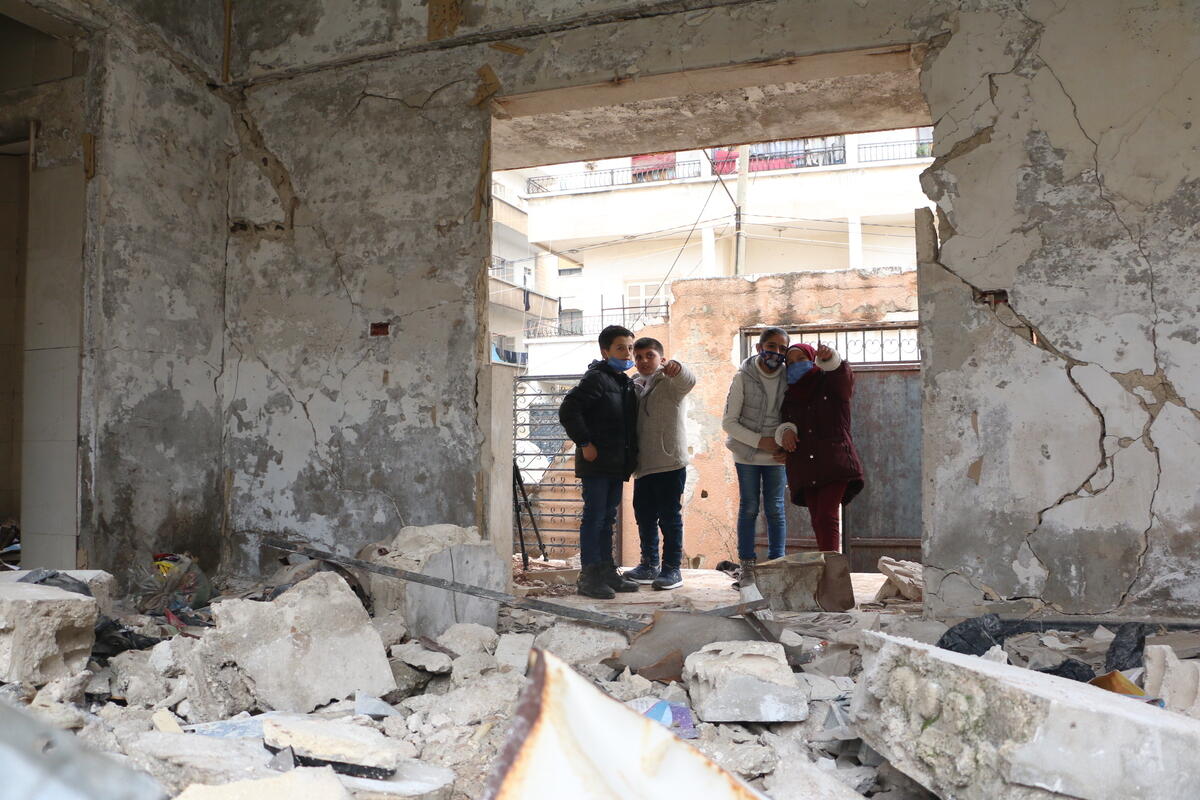
Mustafa*, 10, Bilal*, 10, Raya*, 9, and Sara*, 10, in the section of their school which was damaged by an airstrike in 2018, Idlib, North West Syria. Photo credit: Hurras Network / Save the Children
Attacks on schools in North West Syria have been continuing despite a ceasefire that was agreed more than a year ago, Save the Children said today.
Since the beginning of 2020, Save the Children and its partner Hurras Network have confirmed 37 attacks on educational facilities to date in the North West of Syria[i]. Nine of these took place after the announcement of the ceasefire in March 2020.
The attacks have killed at least four children and four staff members of the schools, with the actual number of deaths expected to be higher. School facilities have been destroyed and damaged and the education of many children has been disrupted.
Although there has been a decline in the number of attacks compared to 2019 – when 80 such violations took place – Save the Children is warning that education remains under threat due to the continuous violence. Across Syria, 61 attacks were verified by the Syria Monitoring and Reporting Mechanism.[ii]
In one incident recorded by Save the Children and Hurras Network, artillery shells fell a few metres outside a school as children gathered in the playground. They were escorted indoors by their teachers and sent home when the shelling stopped.
The new data shows that the attacks, mainly airstrikes and artillery shelling, have brought learning to a halt. At least three of the attacks damaged or destroyed the school buildings, leaving children with nowhere to go for their education.
Sara*, 10, is in the fourth grade. She recalls an attack at the school she used to attend in her hometown, Ma’arat Nu’man, north of Hama, before being displaced to Idlib. She said,
“My school was shelled while I was in it. I got really upset for my friends, teacher and headmistress. I even got upset over the school because I felt like there weren’t any schools left and I was really attached to my school. I thought we were never going to be able to learn anymore.
“[When shelling takes place] I hide in the safest place and I open my mouth and close my ears so I won’t hear the airstrikes and feel that there’s nothing wrong.”
Raya*, also 10, has been displaced in Idlib for two years. She told Save the Children’s partners:
“When the airstrike hit the school, both my older brother and sister were inside studying. The classroom window fell on my brother and thank goodness nothing happened to my sister.”
Attacks against schools are classified by the United Nations as one of the six grave violations committed against children[iii]. 35 percent of teachers surveyed by Save the Children last year said that attacks on education facilities were one of the primary reasons forcing children to drop out of school.[iv]
Save the Children’s Syria Response Director, Sonia Khush, said:
“It is heartbreaking to see that children continue to be victims of the Syrian conflict and pay the highest price of this conflict. Schools should be safe havens for children and not zones of war. It is appalling to witness that despite the ceasefire announced in March 2020, the conflict continues to kill children and families across the whole country. These are grave violations committed against innocent individuals and should be put to an end.”
Save the Children calls on all sides to the conflict to respect International Humanitarian Law, endorse the Safe Schools Declaration, avoid targeting schools and civilian infrastructure as well as ensure the safety and protection of children.
i Save the Children collaborated with a partner to create a system in North West Syria to regularly collect information and evidence related to attacks on education and their impact on children, teachers and education infrastructure.
ii The Monitoring and Reporting Mechanism (MRM) was launched by the UN to monitor grave child rights violations and enhance the accountability of perpetrators. The purpose of the MRM is to provide for the systematic gathering of accurate, timely, objective and reliable information on six grave violations committed against children in situations of armed conflict.
iii https://childrenandarmedconflict.un.org/six-grave-violations/ For more information kindly reach out to:
Ahmed Bayram, ahmed.bayram@savethechildren.org /
Emily Wight, emily.wight@savethechildren.org /
Out-of-hours (GMT) and weekend: Media@savethechildren.org.uk / +44 7831 650 409
Accompanying multimedia content available at the link below:
https://www.contenthubsavethechildren.org/Package/2O4C2SAR9X7W
